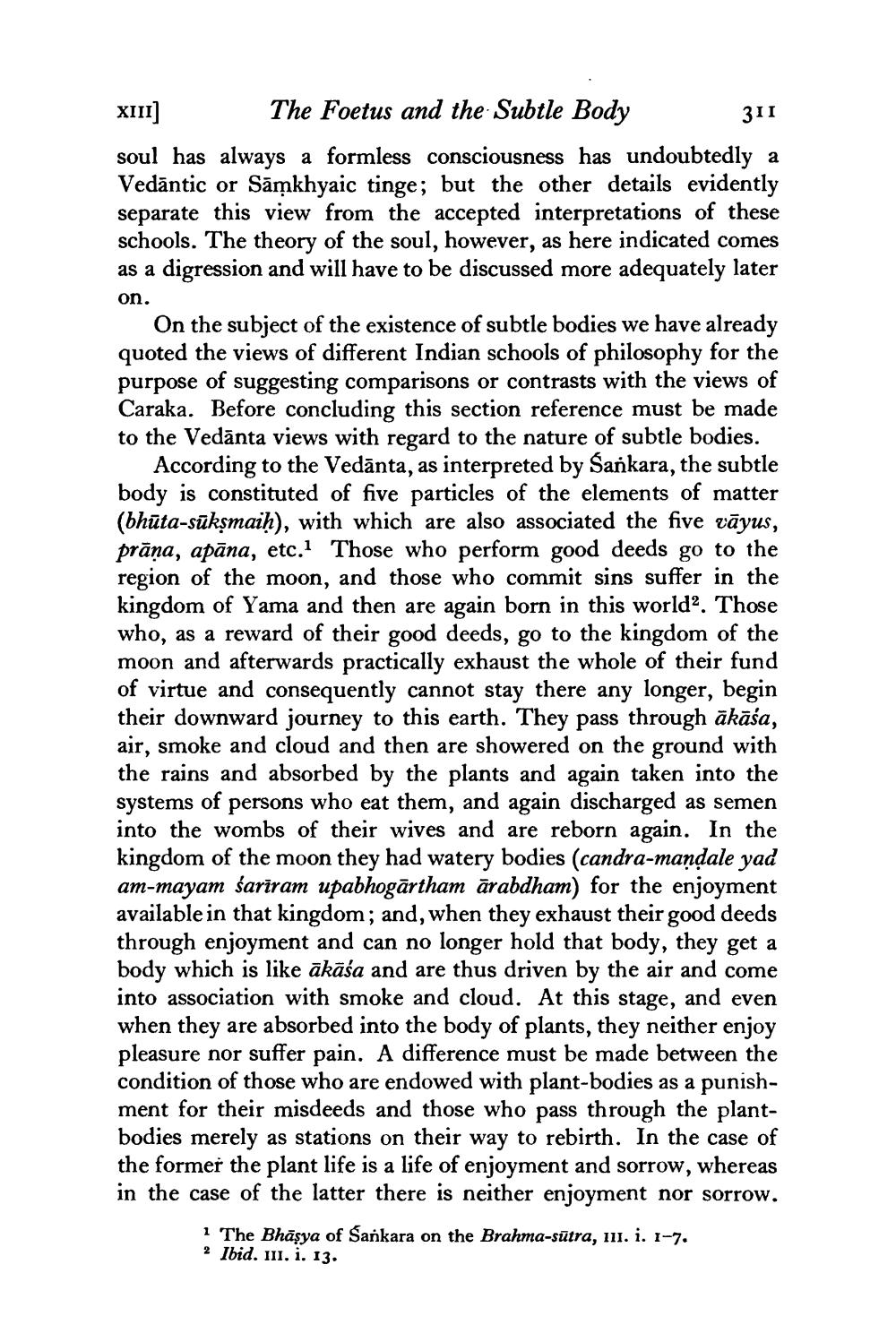________________
311
XIII) The Foetus and the Subtle Body soul has always a formless consciousness has undoubtedly a Vedāntic or Samkhyaic tinge; but the other details evidently separate this view from the accepted interpretations of these schools. The theory of the soul, however, as here indicated comes as a digression and will have to be discussed more adequately later on.
On the subject of the existence of subtle bodies we have already quoted the views of different Indian schools of philosophy for the purpose of suggesting comparisons or contrasts with the views of Caraka. Before concluding this section reference must be made to the Vedānta views with regard to the nature of subtle bodies.
According to the Vedānta, as interpreted by Sankara, the subtle body is constituted of five particles of the elements of matter (bhūta-sūksmaih), with which are also associated the five vāyus, prāņa, apāna, etc. Those who perform good deeds go to the region of the moon, and those who commit sins suffer in the kingdom of Yama and then are again born in this world2. Those who, as a reward of their good deeds, go to the kingdom of the moon and afterwards practically exhaust the whole of their fund of virtue and consequently cannot stay there any longer, begin their downward journey to this earth. They pass through ākāśa, air, smoke and cloud and then are showered on the ground with the rains and absorbed by the plants and again taken into the systems of persons who eat them, and again discharged as semen into the wombs of their wives and are reborn again. In the kingdom of the moon they had watery bodies (candra-mandale yad am-mayam śarīram upabhogārtham ārabdham) for the enjoyment available in that kingdom; and, when they exhaust their good deeds through enjoyment and can no longer hold that body, they get a body which is like ākāśa and are thus driven by the air and come into association with smoke and cloud. At this stage, and even when they are absorbed into the body of plants, they neither enjoy pleasure nor suffer pain. A difference must be made between the condition of those who are endowed with plant-bodies as a punishment for their misdeeds and those who pass through the plantbodies merely as stations on their way to rebirth. In the case of the former the plant life is a life of enjoyment and sorrow, whereas in the case of the latter there is neither enjoyment nor sorrow.
1 The Bhāsya of Sankara on the Brahma-sūtra, 111. i. 1-7. 2 Ibid. ill. i. 13.




